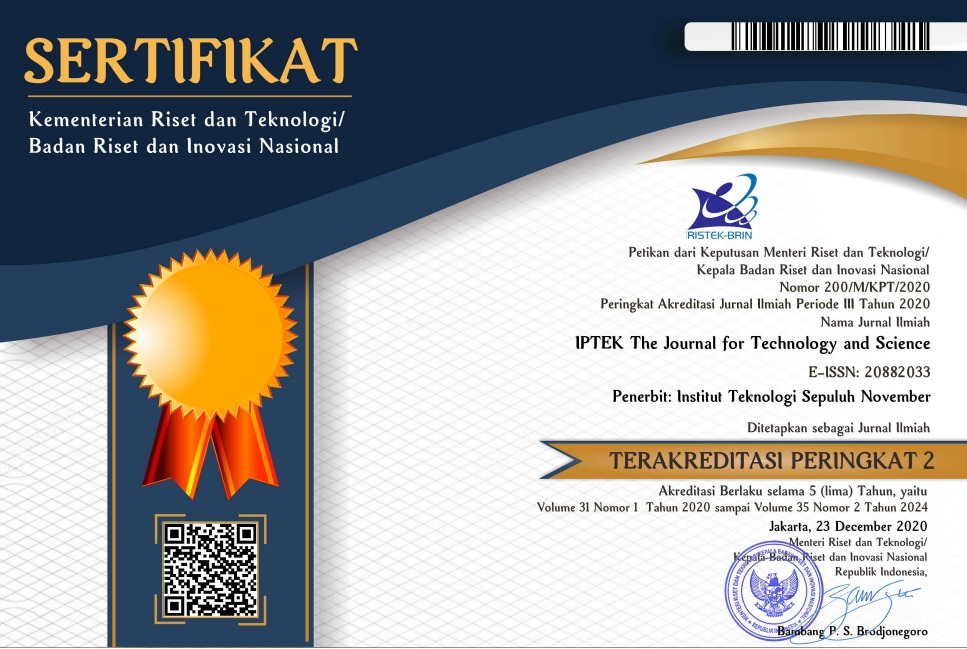Student Behaviour Analysis To Detect Learning Styles Using Decision Tree, Naïve Bayes, And K-Nearest Neighbor Method In Moodle Learning Management System
Abstract
Keywords
Full Text:
Full TextReferences
Graf S, Kinshuk, Liu TC. Identifying Learning Styles in Learning Management Systems by Using Indications from Students' Behaviour. In: 2008 Eighth IEEE International Conference on Advanced Learning Technologies IEEE; 2008. p. 482–286. https://doi.org/10.1109/icalt.2008.84.
Popescu E. Diagnosing Students' Learning Style in an Educational Hypermedia System. In: Cognitive and Emotional Processes in Web-Based Education IGI Global; 2009.p. 187–208. https://doi.org/10.4018/978-1-60566-392-0.ch011.
Feldman J, Monteserin A, Amandi A. Automatic detection of learning styles: state of the art. Artificial Intelligence Review 2014 may;44(2):157–186. https://doi.org/10.1007/s10462-014-9422-6.
Viola S, Graf S, Kinshuk, Leo T. Analysis of Felder-Silverman Index of Learning Styles by a Data-Driven Statistical Approach. In: Eighth IEEE International Symposium on Multimedia (ISM'06) IEEE; 2006. p. 959—-964. https://doi.org/10.1109/ism.2006.30.
Ikawati Y, Rasyid MUHA, Winarno I. Student Behavior Analysis to Detect Learning Styles in Moodle Learning Management System. In: 2020 International Electronics Symposium (IES) IEEE; 2020. p. 501—-506. https://doi.org/10.1109/ies50839.2020.9231567.
Lwande C, Muchemi L, Oboko R. Identifying learning styles and cognitive traits in a learning management system. Heliyon 2021 aug;7(8):e07701. https://doi.org/10.1016/j.heliyon.2021.e07701.
Kolekar SV, Pai RM, Pai M. Adaptive User Interface for Moodle based E-learning System using Learning Styles. Procedia Computer Science 2018;135:606–615. https://doi.org/10.1016/j.procs.2018.08.226.
Aissaoui OE, Madani YEAE, Oughdir L, Allioui YE. Combining supervised and unsupervised machine learning algorithms to predict the learners’ learning styles. Procedia Computer Science 2019;148:87–96. https://doi.org/10.1016/j.procs.2019.01.012.
Rasheed F, Wahid A. Learning style detection in E-learning systems using machine learning techniques. Expert Systems with Applications 2021 jul;174:114774. https://doi.org/10.1016/j.eswa.2021.114774.
Pasina I, Bayram G, Labib W, Abdelhadi A, Nurunnabi M. Clustering students into groups according to their learning style. MethodsX 2019;6:2189–2197. https://doi.org/10.1016/j.mex.2019.09.026.
Bernard J, Chang TW, Popescu E, Graf S. Learning style Identifier: Improving the precision of learning style identification through computational intelligence algorithms. Expert Systems with Applications 2017 jun;75:94–108. https://doi.org/10.1016/j.eswa.2017.01.021.
Crockett K, Latham A, Whitton N. On predicting learning styles in conversational intelligent tutoring systems using fuzzy decision trees. International Journal of Human-Computer Studies 2017 jan;97:98–115. https://doi.org/10.1016/j.ijhcs.2016.08.005.
Heidrich L, Barbosa JLV, Cambruzzi W, Rigo SJ, Martins MG, dos Santos RBS. Diagnosis of learner dropout based on learning styles for online distance learning. Telematics and Informatics 2018 sep;35(6):1593–1606. https://doi.org/10.1016/j.tele.2018.04.007.
Bajaj R, Sharma V. Smart Education with artificial intelligence based determination of learning styles. Procedia Computer Science 2018;132:834–842. https://doi.org/10.1016/j.procs.2018.05.095.
Costa RD, Souza GF, Valentim RAM, Castro TB. The theory of learning styles applied to distance learning. Cognitive Systems Research 2020 dec;64:134–145. https://doi.org/10.1016/j.cogsys.2020.08.004.
Shi K, Qin H, Sima C, Li S, Shen L, Ma Q. Dynamic Barycenter Averaging Kernel in RBF Networks for Time Series Classification. IEEE Access 2019;7:47564–47576. https://doi.org/10.1109/access.2019.2910017.
Cao G, Downes A, Khan S, Wong W, Xu G. Taxpayer Behavior Prediction in SMS Campaigns. In: 2018 5th International Conference on Behavioral, Economic, and Socio-Cultural Computing (BESC) IEEE; 2018. p. 19–23. https://doi.org/10.1109/besc.2018.8697317.
Mahardhika AA, Saptono R, Anggrainingsih R. Sistem Klasifikasi Feedback Pelanggan Dan Rekomendasi Solusi Atas Keluhan Di UPT Puskom UNS Dengan Algoritma Naive Bayes Classifier Dan Cosine Similiarity. Jurnal Teknologi & Informasi ITSmart 2016 sep;4(1):36. https://doi.org/10.20961%2Fits.v4i1.1806.
Jauhari D, Hanafi A, Yuniarsa MFA, Satria AR, H LH, Cholissodin I. Prediksi Nilai Tukar Rupiah Terhadap US Dollar Menggunakan Metode Genetic Programming. Jurnal Teknologi Informasi dan Ilmu Komputer 2016 dec;3(4):285. https://doi.org/10.25126%2Fjtiik.201634235.
DOI: http://dx.doi.org/10.12962%2Fj20882033.v33i2.13665
Refbacks
- There are currently no refbacks.
IPTEK Journal of Science and Technology by Lembaga Penelitian dan Pengabdian kepada Masyarakat, ITS is licensed under a Creative Commons Attribution-ShareAlike 4.0 International License.
Based on a work at https://iptek.its.ac.id/index.php/jts.


